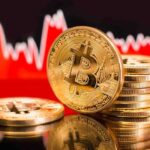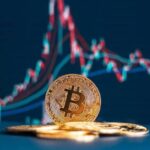With all eyes on the Federal Reserve’s upcoming monetary policy decisions, particularly regarding potential interest rate cuts, an economist is sounding the alarm about the institution’s approach to managing the economy.
In a post on X on August 31, Henrik Zeberg raised concerns about the Federal Reserve’s “biggest policy error ever.” He suggested the Fed’s current stance on interest rates is misguided and could lead to severe deflation and a deep recession.
The warning stems from comparing present economic indicators with those observed before the 2001 recession and the 2007 Great Financial Crisis.
He argued that today’s economic situation is more precarious than it was just before these major downturns, pointing to key economic metrics such as Gross Domestic Product (GDP) growth, Non-Farm Payrolls (NFP), the unemployment rate, inflation, and the two-year Treasury yield—all of which, he believes, paint a troubling picture.
“The FED is in the process of conducting its biggest Policy Error ever!<…> It is a mystery to me, what the Fed is looking at – and it is going to cause a severe Deflation,” he said.

Lack of justification for high interest rates
According to the economist, GDP growth, while modest, is not robust enough to justify the current high Federal Funds Rate. He suggested that the economy is showing signs of stagnation, reminiscent of the period preceding previous recessions. Additionally, the NFP data reflects a slowdown in job creation, with recent figures showing a significant drop compared to the stable period before the 2007 crisis. Zeberg argued that this decline in employment growth is a warning sign that the Fed seems to overlook.
Moreover, the two-year Treasury yield has reached a high level historically associated with economic downturns. Zeberg warned that such high yields, combined with the current Fed Funds Rate, could stifle economic activity and lead to a severe contraction.
While the unemployment rate remains low, he cautioned that this could change rapidly if the Fed continues on its current course.
Additionally, he contended that the Fed’s aggressive stance on combating inflation may no longer be necessary, especially when economic growth is already under pressure.
He was particularly critical of the Fed’s decision to maintain such high interest rates, a level not seen before the last two recessions. In his view, this could be a critical mistake exacerbating the fragile economic situation.
Similarities to past recessions
Drawing a historical comparison, the analysis highlighted that the current economic climate bears unsettling similarities to the months leading up to the 2001 and 2007 recessions. He noted that the Fed’s monetary policy contributed to the subsequent economic downturns in both cases. He suggests that the current situation is even more dire, with economic indicators showing weaker performance than before those past recessions.
Given the apparent warning signs, Zeberg expressed bewilderment at what the Federal Reserve might base its decisions on. The expert noted that the Fed’s focus might be misplaced, potentially overlooking the broader economic context in favor of narrowly targeting inflation. He stated this could lead to a policy-induced deflationary spiral with devastating financial consequences.
Indeed, recent analyses have increasingly warned that the U.S. economy is on the verge of a severe recession. As reported by Finbold, Zeberg pointed out that the Fed might be too late to rescue the economy while maintaining that investors should expect a surge in the stock and cryptocurrency markets before a crash.
Disclaimer: The content on this site should not be considered investment advice. Investing is speculative. When investing, your capital is at risk.








